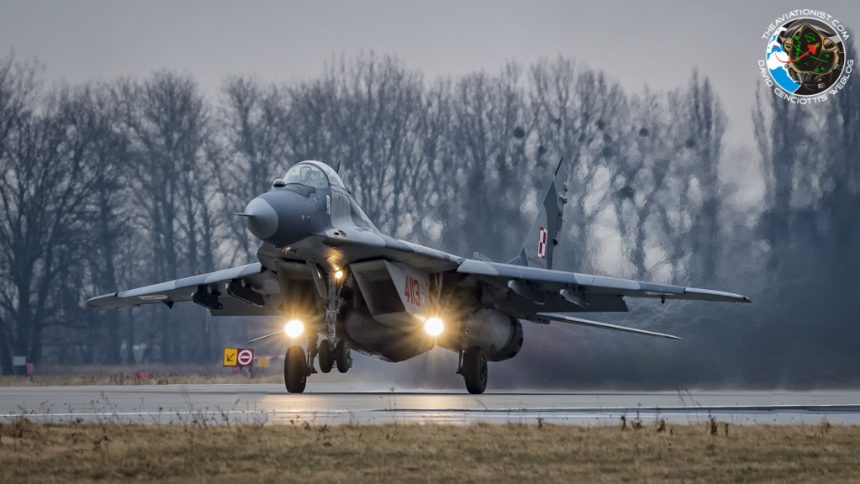Polish Fulcrums are having a rough time lately.
One of the Polish MiG-29 Fulcrums made an emergency landing at the 22nd AB in Malbork around noon on Feb. 15, 2019, Onet.pl reports. The incident has been confirmed by Marek Pawlak, spokesman for the Polish MoD. Onet.pl, quoted Pawlak who stated that the pilot experienced cockpit decompression and then, using the jet’s emergency oxygen system, landed at the Malbork airbase. He was taken to a hospital in Gdynia afterwards. The pilot, as the spokesman assured, is OK.
This is not the first event as such – it was reported by various media outlets that a similar occurence did happen to another Polish pilot back in Apr. 2018.
The Polish Fulcrums are having a rough time recently – on Dec. 18, 2017 a Polish MiG-29 crashed near the base in Minsk Mazowiecki. The pilot did not eject, but survived. The crash in question is still under investigation. In July last year another crash happened in Pasłęk, near Malbork. In that case, the pilot ejected, but the ejection seat failed, causing his death.
The general conclusion of the newspiece published by Onet is that the pilots do not trust the aircraft anymore. Keeping a clean record for nearly three decades, they were considered to be relatively safe, but during the recent period this is gradually changing. Some problems also emerge, as rumors suggest, when it comes to availability of spare parts that need to be sourced via intermediaries, from Russia.
The aircraft should be replaced with the procurement of new fighter aircraft as part of the initiative referred to as “Harpia” (harpy eagle) programme.









